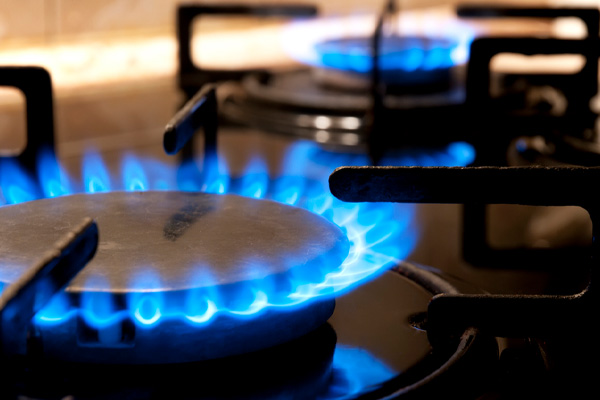The need for clean energy is doubtless, given the urgency of reducing carbon emissions and the desire to protect the natural environment. There’s simply no good argument against reversing climate damage for generations to come. However, bearing these things in mind, the notion of electrification as a clean energy solution has become incredibly popular in recent years. Sadly, electrification isn’t really the foolproof solution that it’s being touted as. There are astronomical conversion costs to consider and only homeowners and companies with massive budgets are able to comfortably spend the required amounts for fully converting their offices and homes.
Comparatively, propane makes excellent sense for clean energy. This article covers some of the most important aspects of propane vs electricity in greater detail.
Why Propane Is an Impressive “Green” Solution
 Contrary to what many suspect, propane is actually “green”. In comparison to any other fossil fuel, propane has the highest marks for clean burning. When compared to electricity, propane provides a variety of unique environmental benefits. A number of these benefits are actually very easy to see when you compare any all-electric home to a home that relies on propane for heat. Propane homes put out 30 percent fewer carbon emissions. Moreover, a home that uses propane for heating water, cooking, drying clothes, general heating, and space heating produces half the carbon emissions that an all-electric home does.
Contrary to what many suspect, propane is actually “green”. In comparison to any other fossil fuel, propane has the highest marks for clean burning. When compared to electricity, propane provides a variety of unique environmental benefits. A number of these benefits are actually very easy to see when you compare any all-electric home to a home that relies on propane for heat. Propane homes put out 30 percent fewer carbon emissions. Moreover, a home that uses propane for heating water, cooking, drying clothes, general heating, and space heating produces half the carbon emissions that an all-electric home does.
Additionally, there are ongoing efforts in the propane industry to produce renewable propane. This is a renewable liquid fuel that’s comprised of water residue and materials that are sustainably sourced such as cooking oil, fats from meats, and agricultural waste. It is frequently a co-product of biodiesel fuel.
With these things, there are eco-friendly, renewable options (biomass) that are equally clean but far more economical for any business owner or homeowner who cannot handle the high costs of electrical conversion.
Appliances That Are Fueled by Propane

Appliances that rely on propane are much more efficient than appliances that are electrically powered. This means having a lower carbon footprint. For instance, propane hot water heaters are able to generate the same amount of hot water that electric hot water heaters do, but in just half the time. Propane dryers get the job done 25 percent faster than electric ones. Even propane space heaters are much more efficient than their electric counterparts. All of this extra efficiency definitely adds up. It’s better for both your budget and the environment.
Propane Isn’t Toxic
Propane also provides greater peace of mind for both homeowners and commercial property owners. Also, propane is entirely non-toxic. In the rare case that a leak does occur, propane won’t harm the environment. More specifically, it won’t harm water-based species, plants, water, soil, or the air.
Other Important Propane Facts
Following are several additional propane facts including why this fuel is considered to be “green”:
- The only alternative fuel that’s included in part of the 1992 National Energy Policy Act and the 1990 Clean Air Act is propane.
- Propane is both the simplest and the lightest hydrocarbon in the world.
- Easily one of the cleanest-burning fossil fuels, propane products almost no greenhouse gases.
- Approximately 90 percent of the nation’s propane supply is produced right here in America or in Canada so the carbon footprint relating to the transport of this resource is also much smaller than it is for fuels that are imported from far greater distances. Moreover, the availability and price of propane are not subject to global variables.
Drawbacks to Both the Electrification Movement and Electricity as a Solution
Even though electricity is touted as a “green” option, there are a number of important drawbacks to consider. The vast majority of electricity used in the nation is produced by power plants that burn coal. As such, electricity is actually America’s second-biggest source of greenhouse gas. The only thing that produces more is transportation.
Moreover, when you consider the energy necessary for extraction, transport, and processing, propane is actually 87 percent efficient while the efficiency of electricity is just 32 percent.
What Are the Consequences of Total Electrification?
Consider the following consequences of total electrification:

Legislation seeks to replace boilers and furnaces that are oil and propane-fired with electric heat pumps. However, over half of the electricity that’s produced is the result of natural gas combustion, which is primarily methane – a gas that traps heat 80 times more effectively than carbon dioxide. This means that there won’t be much change in the overall carbon footprint for the state – in fact, this transition can even expand the current, collective carbon footprint when you account for the fact that between eight and 15 percent of the electricity that plants produce is actually lots in transit to homes and businesses.
The energy grid is both fragile and subject to brown-outs during times when the weather is at its extreme. How then could it be expected to meet the demand of severe winter weather in central Maryland and southern Pennsylvania?
Electrically-powered heat pumps are actually quite common as secondary heat sources. However, during cold weather, they experience a dramatic decline in efficiency – an issue that oil-fired and propane-fired systems simply do not have.
With electrically powered heat pumps, you should be ready for frosty nights.
According to local data, the average heat pump installation costs can exceed $20,000, which is approximately twice the cost of replacing boilers and furnaces that run on either oil or propane.
9 Reasons Why You Should Be Using Propane in Your Home
As stated before, although electrification is generating a lot of buzz, there are many solid reasons to opt for propane instead. Following are nine compelling reasons why you should be using propane in your home rather than electricity.
Propane Is Incredibly Cost-Effective

Propane-powered appliances are highly efficient and thus, they cost less to use. The United States Department of Energy reports that homeowners can save as much $174 each year by having propane water heaters rather than electric water heaters. Propane water heaters also cost about 30 to 50 percent less to use than electric water heaters.
Propane Is Very Versatile
Not only can propane be used to heat your home up but it can also power a number of common appliances including dryers, ovens, and even water heaters. Propane can even be used for many outdoor appliances such as pool and patio heaters and grills. You can use propane lighting or a propane fire pit to create a warm, cozy ambiance.
Propane Is Reliable
During times of extreme weather or other unexpected events that cause electricity to fail, your ability to access and use propane will remain unchanged.
Propane Allows for Easy Storage
Propane won’t degrade as time goes on and propane storage tanks provide longevity and ease of maintenance. A propane storage tank can last as long as four decades.
You Can Find Propane Wherever You Need It
It can cost a lot to access the electrical grid in some areas. However, at Tevis Energy, we provide reliable propane delivery services all throughout central Maryland and southern Pennsylvania. No matter what the market conditions or weather may be, you can trust that we’ll keep you well-supplied with propane.
Propane Does the Job Fast

A propane water heater will heat your water far faster than an electric one will. In fact, it will produce twice as much hot water within the same amount of time. You can dry your close 25 percent faster with a propane dryer and you’ll have a lot less static. Even propane space heaters outperform their electric counterparts.
Propane Is Better for the Environment Than Most People Think
A propane water heater will produce approximately half of the greenhouse emissions than electric water heaters with storage tanks will. Given that coal-burning power plants produce the vast majority of our electricity, electricity is actually the second greatest source of greenhouse gases in the nation.
Enjoy Longevity With Propane
Propane furnaces last about 20 years. Conversely, electric heat pumps last about 14.
Get Optimum Efficiency With Propane
It will take 27-kW hours of electricity to generate the same amount of energy that you’d get from burning a single gallon of propane.
Conclusion
There are many reasons to start or continue using propane in your home and Tevis Energy is always available to meet your propane supply needs.
Call Tevis Energy For Superior Propane Delivery Services

Tevis Energy is the company to call when you need a superior propane delivery service in central Maryland and southern Pennsylvania. We ensure that all our fuel deliveries are high-quality, fast, friendly, and affordable.
Rest assured, we offer excellent services at all times. Call us today to know about our various delivery plans and financing options.
We also have a full line of HVAC services to help improve your home’s energy efficiency, comfort, indoor air quality, and more. Several of our services are heating and cooling maintenance, installations, replacements, and repairs. Call Tevis Energy now!
You can click here to contact us now or call us at (410) 876-6800 to find out more!
